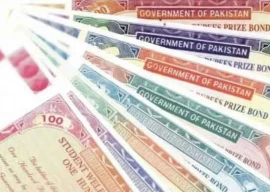
“Digitalisation of the tax collection system is being done under aggressive reforms at the FBR,” said FBR Chairman Dr Jahanzeb Khan while addressing the business community at the Federation of Pakistan Chambers of Commerce and Industry (FPCCI) on Saturday.
“We are actively working on reforms these days. We are hopeful to present the digital tax collection system by next year and implement it in one to two years,” he said.
He pointed out that the FBR had already gathered data and information related to thousands of potential taxpayers. The data has been collected keeping in view their lavish lifestyle, frequent overseas visits, huge property in the country and abroad, expensive cars and exorbitant school fee of their children.
“We are going to merge the data with the under-developing digital tax collection system,” he said.
The FBR had been maintaining a large database since long, but a lack of capacity, capability and analytics software prevented it from processing the data in order to identify thousands of potential taxpayers, he said while addressing business community at the Karachi Chamber of Commerce and Industry (KCCI) later.
As a test case, the FBR issued notices to 6,000-6,500 potential taxpayers on the basis of findings that they had bought properties of over Rs20 million each and purchased expensive cars recently. “This was Rs3 billion worth of tax detection and so far we have collected Rs2.75 billion,” Khan revealed.
He said information technology-based reforms were aimed at simplifying the tax collection system to facilitate the taxpayers. Besides, it will automatically detect if someone pays lower than-the-required tax.
He said the new system would reduce human interaction, which would ultimately end alleged culture of corruption and harassment of taxpayers at the hands of tax collectors. “The system is aimed at facilitating the taxpayers, so that the business community could itself come forward to pay due taxes on time.”
Tax policy in budget
Expressing his regret that authorities had failed to introduce tax policy over the past 70 years, the FBR chairman announced that the present government was set to unveil the tax policy in the upcoming budget for fiscal year 2019-20. The policy will give a direction to the taxpayers on, how and when, which tax is to be paid at what rate, which tax is to be reduced and abolished at what timeline.
“The policy will set two-to-five-year tax milestones,” he said. “No policy means no accountability.”
July-December 2018: FBR misses half year tax collection target by Rs172b
Tax collection and IMF
Khan said they faced a shortfall of Rs220 billion in tax collection in first half (Jul-Dec) of the current fiscal year. “The FBR usually collects 40-45% of total collection in the first half,” he said, adding that they knew it was a tough time and economic slowdown was one of the causes for the shortfall. However, the improvement in tax collection is a must, especially at a time when the government is in talks with the International Monetary Fund (IMF) for a bailout.
“Increase in tax collection and widening of the tax net has remained one of the several conditions of the creditors to make sure borrowers create capacity to pay off loans on time,” he said.
Crackdown halted
The FBR chairman pointed out that the revenue board had issued notices to potential taxpayers and conducted raids in an effort to increase tax collection. The exercise, however, was not aimed at harassing the taxpayers.
On the request of the business community to stop harassment, he announced a halt to the crackdown on them with immediate effect.
FPCCI President Daroo Khan said, “The businessmen whose business premises were raided also included those who filed tax returns, but they submitted the returns later than the deadline.”
The FBR chairman asked businessmen to respond to show-cause notices on time, adding that the FBR had extended the deadline till March 31 for tax return filing. He also announced the constitution of a liaison committee at his office so that businessmen may get in touch with tax officers to address related issues.
Refunds in April
The chairman said they were also actively working to release the withheld tax refunds for the business community. As per earlier announcement, one-third of the refunds will be in cash and two-thirds in the shape of promissory notes. “We are scheduled to issue promissory notes sometime next month,” he said.
Moreover, he urged the business community to submit budget proposals in the next 15 days as they had to complete work in April for budget presentation for the next fiscal year.
The next budget would be an extension of the last mini-budget presented in January, which completely focused on improving the ease of doing business in the country, he added.
Published in The Express Tribune, March 17th, 2019.
Like Business on Facebook, follow @TribuneBiz on Twitter to stay informed and join in the conversation.









1732486769-0/image-(8)1732486769-0-270x192.webp)







COMMENTS
Comments are moderated and generally will be posted if they are on-topic and not abusive.
For more information, please see our Comments FAQ